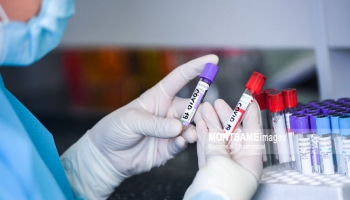The government of Latvia is continuing its efforts to reduce the spread of Covid-19 and prevent the associated risks. The Cabinet of Ministers has extended the duration of emergency situation, and has adopted a number of decisions in addition to already effective measures, thereby ensuring the work and cooperation between the State, local governments and other service providers during the crisis. Decisions on the extension of restrictions have been taken in accordance with the recommendations of epidemiologists, and aim to protect public health and security.
In order to limit the spread of Covid-19, the Cabinet of Ministers has extended the state of emergency until 12 May this year, thereby extending the validity of the government’s Order “Regarding the Declaration of Emergency Situation” of 12 March.
The government has already banned all private arrangements, other than the holding of funeral ceremonies outdoors provided that the distance of two metres between persons and other epidemiological safety measures are respected. It has also supported the exception regarding christening ceremonies in urgent cases.
All nationals of the European Union, as well as persons who permanently reside in these countries, will be allowed to cross the territory of the Republic of Latvia once at specific border crossing points in order to return to their home country.
Prior to returning to Latvia, persons will have to give full information regarding their actual place of residence where they can be reached. If the address of the actual place of residence differs from the address of place of self-isolation, the person will have to notify immediately the State Police. Administrative or criminal liability will apply in cases where false information is provided.
Educators of experts in the field of protection of children’s rights (e.g. social workers, judges, prosecutors, police officers working with children and families) will still have the opportunity to make more extensive use of distance learning. The training is usually carried out on site, but in view of the current situation, this target group will also be able to learn the theoretical part of educational programmes remotely.
With a view to provide the solutions required to limit the outbreak of Covid-19, it has been determined, that state-owned and local government capital companies, local government authorities and institutions may not apply the Public Procurement Law and the Law on the Procurement of Public Service Providers. This applies to cases where they need to purchase goods and services necessary for staff of local government authorities and social service recipients, as well as for accommodation, supervision, catering, hygiene, security of residents of local governments, as well as other measures.
The Order also lays down the procedures by which the State property can be transferred for free use to public benefit organisations or social enterprises with a view to limit the spread of Covid-19 and eliminate the consequences.
It will be possible to grant personal protective equipment purchased by the National Health Service to local governments, social care institutions of local governments, municipal police, as well as the institutions of the Ministry of the Interior free of charge without clarifying whether state and other institutions need them.
The registration and investigation of cases has been facilitated for officials of home affairs and security authorities, by determining that confirmed case of Covid-19 is not considered to be an accident at work.




![Ulaanbaatar [1.4 million people get first dose of COVID-19 vaccine]](https://capitalsinitiative.com/wp-content/uploads/thumbs_dir/60a1e65c706f1-1y44tn2lku72ys2oyrnxem2r2g6vp4si1kmalxcjaug4.jpeg)
![Ulaanbaatar [Over 1.5 million involved in COVID-19 testing nationwide]](https://capitalsinitiative.com/wp-content/uploads/thumbs_dir/6010fd2a7d4f2-1xlr25fmpk06yhym156ag12rpcvacepvna64fmsptc4k.jpeg)

![Ulaanbaatar [Hair and beauty salons, non-grocery stores reopen today]](https://capitalsinitiative.com/wp-content/uploads/thumbs_dir/600baab4cff61-1xlr1u6xb5g4y36pw0dcqpiw8pax34lczrv0lk7tvj50.jpeg)
